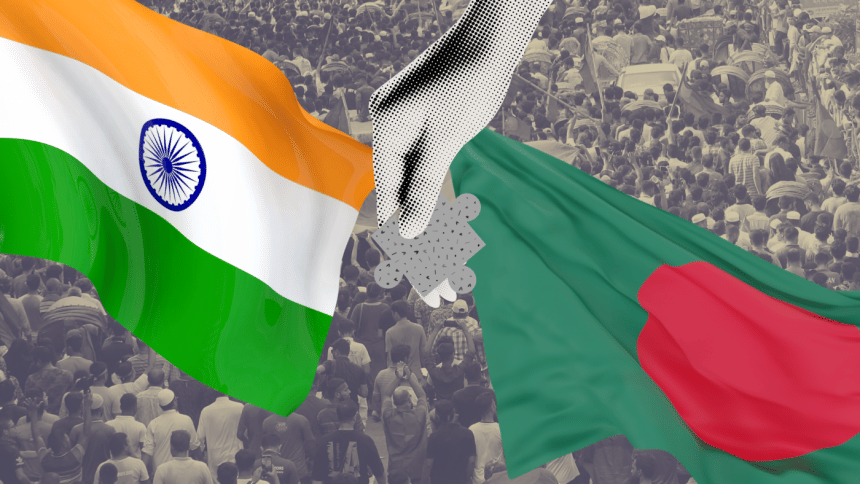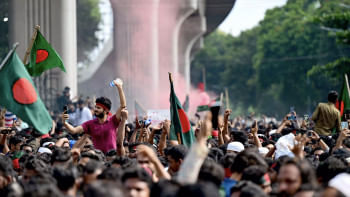India is failing to understand Bangladesh’s new reality

The statement by Indian Defence Minister Rajnath Singh calling upon the Indian military leadership to analyse the conflicts in Ukraine, Gaza and Bangladesh has caused confusion and concern in Dhaka. It is crucial for India to clarify the meaning behind this statement, given its official status. The comparison with Ukraine—which is facing invasion and war with Russia—and Gaza—which has been destroyed by Israel's brutal military campaign that has killed over 40,000 people since October 7, 2023—are quite intriguing, extreme, and certainly not appropriate.
For the past month, there has been a pressing need for India to recognise that a people's revolution, now being referred to as the "Monsoon Revolution," has taken place in Bangladesh. And the two countries now need to recalibrate their relationship, rebuilding it based on mutual respect, which has not yet been achieved—nor has there been any clear indication that it will be.
As Bangladesh works to rebuild after the Monsoon Revolution, we need our neighbours and friends to stand with us. Statements like that of the Indian defence minister will vitiate the tense atmosphere and are not conducive to fostering a constructive relationship between Bangladesh and India. The Bangladesh foreign ministry should seek an urgent clarification as to what this statement means.
It is equally important for New Delhi to understand that a people's revolution has occurred in Bangladesh—people have toppled an autocratic and despotic order. And that this revolution represents the aspirations of all Bangladeshis (from all religions and walks of life) for a just and equitable society.
New Delhi also needs to accept and address the perception that its relationship with Bangladesh was previously centred on a single individual and political party, rather than being a broad-based relationship. In light of this, we also need to take into account the recent killing of Swarna Das by India's Border Security Force (BSF). Incidents like this are unacceptable, but they continue to remain unaddressed. So, there is an urgent need to recast this relationship, making it broad-based, constructive, and grounded in mutual respect.
I have said this before and will say it again: New Delhi needs to recognise the new order which has emerged in Bangladesh and send a special envoy to send a clear and unequivocal signal that it is ready to work with our new interim government, especially after the defence minister's statement, which risks fuelling tensions between these two South Asian nations. India also needs to work with all the stakeholders in Bangladesh and build a relationship between the two republics, rather than with just one political party or leader.
Moreover, New Delhi needs to understand that this revolution was driven by the Bangladeshi youth—the Gen Z. And so, understanding the perspectives, dreams, and aspirations of the next generation of Bangladeshis is critical for fostering sustainable, long-term relations. Their views about the Bangladesh-India relationship are very different from those of the previous generations, and Indian policymakers should also take this into account.
From Bangladesh's side, there is an urgent need to revamp its diplomatic presence in New Delhi. I believe the true message of the post-Monsoon Revolution order in Bangladesh is not being appropriately communicated. We need to think outside the box, as traditional approaches won't cut it anymore. Moving forward, we need to build a future-oriented, forward-thinking agenda.
Shafqat Munir is senior research fellow at Bangladesh Institute of Peace and Security Studies (BIPSS). He can be reached at [email protected].
Views expressed in this article are the author's own.
Follow The Daily Star Opinion on Facebook for the latest opinions, commentaries and analyses by experts and professionals. To contribute your article or letter to The Daily Star Opinion, see our guidelines for submission.

 For all latest news, follow The Daily Star's Google News channel.
For all latest news, follow The Daily Star's Google News channel. 









Comments